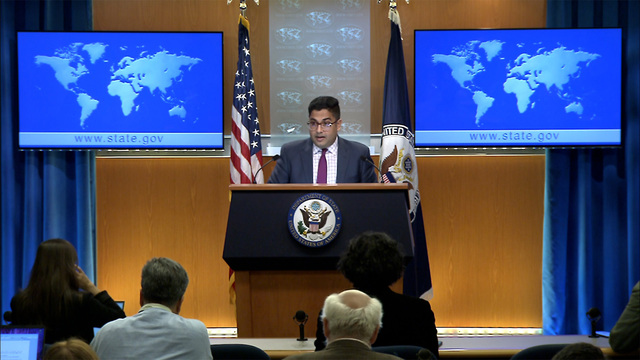Trump’s Military Support Promise for Israel: A New Era in U.S.-Israel Relations
In a significant development amid escalating tensions between Israel and Hezbollah, President-elect Donald Trump has pledged to provide immediate military support for Israel. This promise, conveyed to Israeli media, comes at a critical juncture as the Israeli government contemplates a potential cease-fire with Hezbollah amidst ongoing conflict in the region.
Trump’s Commitment to Unrestricted Military Aid
Reports from Israeli Channel 12 News indicate that Trump is prepared to lift existing restrictions on military equipment and ammunition supplies to Israel immediately after his inauguration. This marks a pivotal shift in U.S. foreign policy, particularly concerning military operations in the Middle East.
Israel’s potential consideration of a **60-day cease-fire** with Hezbollah appears to coincide with Trump’s commitment, providing a strategic window during which the incoming administration could implement policies that enhance Israel’s military capabilities without bureaucracy or delay.
Influencing Israel’s Military Decisions
The assurances provided by Trump’s team seem to have contributed to Israel’s pause in military operations as it assesses the implications of his impending support. Sources close to the situation have reported that this anticipated military assistance has created a conducive environment for negotiations regarding a cease-fire.
Unnamed Israeli officials confirmed these developments to *Fox News Digital*, indicating a shared belief that restored military support from the U.S. post-inauguration could significantly alter the strategic landscape for Israel.
U.S. Arms Restrictions on Israel
As it stands, the U.S. has imposed various restrictions on arms shipments to Israel, including embargoes on certain combat-related equipment that do not involve explosive ordnance. These limitations have presented challenges for Israel, which is currently engaged in military operations on multiple fronts, particularly in both Lebanon and Gaza.
Trump’s pledge to remove these constraints from day one is expected to bolster Israel’s capacity to reinforce its military stockpiles quickly. This relief could play a vital role in Israel’s ability to respond to threats and preserve its national security amidst ongoing regional conflicts.
The Push for a Truce in Lebanon
Coinciding with these military developments, the U.S. ambassador to Lebanon recently presented a draft proposal for a cease-fire between Hezbollah and Israel. This proposal, aimed at mitigating conflict, was communicated to Lebanese Speaker of Parliament, Nabih Berri, though specific details remain undisclosed.
Meanwhile, the Israel Defense Forces (IDF) have escalated military operations targeting Hezbollah’s strongholds in Lebanon. These operations include airstrikes in key areas such as Syria and Beirut’s Dahiya district, focusing on dismantling what it considers terrorist infrastructure in the region.
The Role of the IDF and Military Operations
Brigadier General Daniel Hagari, spokesperson for the IDF, emphasized the critical nature of these operations. “The IDF’s role is to dismantle terrorist infrastructure in southern Lebanon and ensure that Hezbollah cannot threaten Israeli citizens. This is our responsibility, and it is vital for creating the conditions that allow for diplomatic efforts,” he stated.
The emphasis on military action reflects Israel’s dual strategy of negotiating peace while simultaneously preparing for potential future conflicts, particularly as tensions in the region remain high.
Strategic Significance of Trump’s Pledge
According to Amit Segal, Channel 12’s chief political analyst, Trump’s commitment to provide enhanced support offers Israel operational flexibility. This flexibility will be crucial whether Israel pursues an effective cease-fire deal or opts for more aggressive military action with the backing of U.S. resources.
Segal suggested that Israel’s willingness to consider a cease-fire indicates that many of its military objectives in the northern theater may have been achieved. This notion could facilitate a de-escalation of hostilities in the north while the conflict continues to simmer in Gaza, where tensions remain unrelenting.
The Future of U.S.-Israel Relations
The commitment from Trump’s administration signals a transformative phase in U.S.-Israel relations, particularly given the complexity of the geopolitical landscape in the Middle East. While an immediate military backing presents opportunities for stronger bilateral ties, it also raises questions about long-term implications for regional stability.
As the situation unfolds, it remains to be seen how the new administration will balance military support with calls for diplomatic solutions to the ongoing tensions in the region. Future actions and strategies will likely shape not only U.S.-Israel relations but also broader dynamics involving neighboring countries and factions in conflict.
Conclusion: A New Chapter Ahead
As the world watches Israel navigate through a tumultuous period marked by conflict and strategic maneuvering, Trump’s incoming administration’s promises could redefine military alliances and operational capabilities in the region. The expected lifting of military restrictions awaits implementation, with profound implications for both Israel and its adversaries.
*This article outlines the recent developments in U.S.-Israel relations amid increasing tensions in the region, emphasizing the strategic importance of military support and the potential outcomes of ongoing negotiations.*
